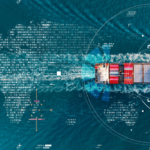Publican’s Trade Series – Exploring How Technology, Data & Analytics Redefine Fraud Detection, Minimize Revenue Leakage & Bridge Inspection Gaps
Chapter 04 / How Low-Quality Data Can Be Transformed into High-Performance Detection
For customs authorities, data is absolutely integral for inspecting shipments and the insight drawn from customs declarations is what they effectively lean on to identify goods and assess the possible risks involved in a shipment. Yet too often, the information submitted comes in the form of vague, partial, or falsified descriptions. When so much of it is low quality, it limits customs’ ability to properly assess the true nature of goods, including their threats and correct tariffs.
In today’s ecosystem, extracting insight from huge amounts of data is one of the WCO & Customs agencies’ main challenges in gaining greater control over cross-border trade.
But to do this, authorities need to now actively start exploring technologies which impart real insight from those huge swathes of limited ‘bad data’ declarations that result in shipment fraud.
HOW DIGITAL VETTING EXTRACTS GOOD INSIGHT FROM ‘BAD DATA’ DECLARATIONS
So how can technology help us discover wrongdoing when we only have limited information to work with? Verifying validity sometimes comes from looking closer at the small print, because even the slightest irregularities in valuations, descriptions, or codes can be extremely valuable when assessing integrity.
This is where Publican’s Digital Vetting Technology can play a central role through an advanced multidimensional system that retrieves and analyzes data in real-time from thousands of global sources.
It inspects every single entity connected to a shipment — exporters, importers, goods, manufacturers, routes, and vessels — with specific indicators such as values, quantities, weights, and serial numbers also utilized. By scrutinizing patterns, transactions and anomalies over 300 risk vectors, it enables highly accurate assessments of cross-border shipments, even when data is far from complete by:
Enhancing Descriptions: Instead of badly declared descriptions serving as moot points, digital vetting turns them into points of insight by employing smart new mechanisms capable of cleansing submitted terms and identifying keywords to complete deliberately reduced wordings . It also uses AI modules designed to evaluate declared classifications directly through the description itself, one recent molasses shipment, for instance, was flagged by Publican’s system due to its “sugar & sweets” description, a highly uncommon term which prompted further exposure of significant tariff evasion.
Optimizing Valuations: When data is limited, digital vetting also has the ability to rapidly assess and validate submitted prices, HS codes, and classifications connected to the value of goods. It uses billions of data points to analyze price rankings, quantities, and weights to detect possible abnormalities and determine validity, as well as mechanisms that identify unique keywords in descriptions that affect the value of goods. An undervalued shipment was recently exposed not only due its generic “Audi” description, but also because digital vetting conducted an in depth valuation analysis into every model.
Finding the Right Ones: It’s one thing assessing the validity of declarations, it’s another thing entirely to identify the right products, classifications, and tariffs before a shipment physically reaches port. Digital vetting is the first technology that achieves this by utilizing advanced modeling that combines local and global data to rapidly identify the right products, descriptions, valuations, and tariff rates. This is a gamechanger for customs because it provides real-time clarity into the true nature of ‘bad data’ shipments and allows them to assess threats, coordinate inspections, and exact the real duties owed in real time.
There’s no doubt that the huge scale of declarations combined with the limitations of today’s standard checks has had a far-reaching impact on global trade, leading to erroneous conclusions, flawed strategies, and missed opportunities. But Publican now gives customs the chance to rewrite that narrative through a Digital Vetting Technology capable of threading smart new AI-driven needles into limited declarations & begin reversing the damage.



Get in touch
-
21 Soho Square London W1D 3QP, UK



